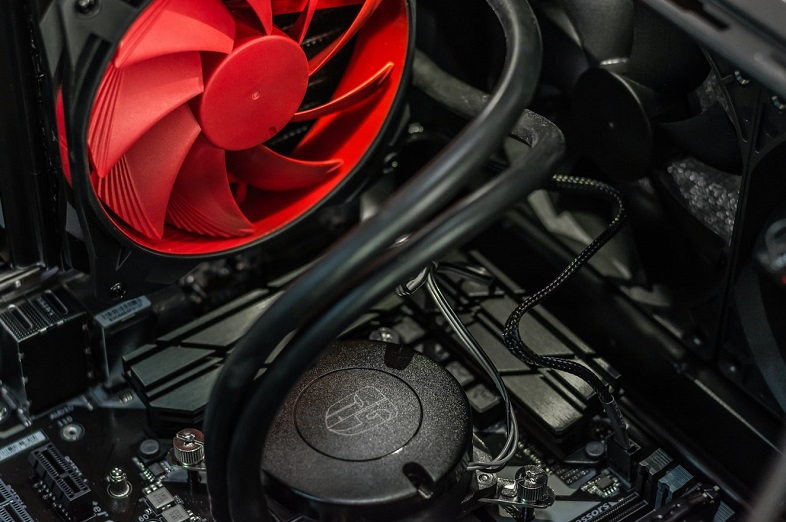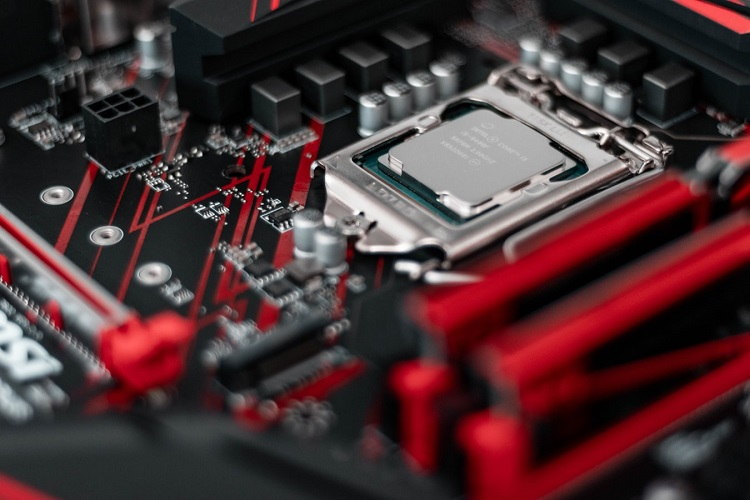In today’s digital age, your computer is more important than ever. Its importance has spanned all areas of work, school, business, and leisure. Whatever you are using your computer for, it is essential that you are maximizing its peak performance.
However, one of the common issues that most people face, nowadays, is overheating. Your PC isn’t technically cheap and without proper care and immediate solution for overheating and other technical issues, you are losing a good amount of money in the long run.
So why exactly does your PC overheat and what can you do about it? Read our post below to know the answers.

Computer overheating is an issue that can plague both novice and seasoned users. With heavy usage, particularly in gaming or high-performance tasks, your computer may run the risk of getting too hot.
This can result in compromised functionality and even permanent damage. In this article, we’ll explore what computer overheating means, how to identify it, how to fix and prevent it, and the long-term risks involved.
What Does Computer Overheating Mean?
When your computer’s internal components generate heat beyond what the cooling system can manage, your computer is said to be overheating. This can result in slowing down your system, unexpected shutdowns, and even hardware failure if not addressed timely.
Factors That Causes Overheating
Computer Overheating is a common occurrence among most PCs and it is caused by multiple factors. Location plays a big role in overheating. If you notice that your PC is getting too hot, first, identify where you place your computer.
Is it positioned in direct sunlight or near any heat source? Computers have the ability to self-cool, however, the room temperature can also affect its ability, so make sure to store it in a cool place. Another factor to consider would be ventilation.
Your computer has vents for its self-cooling function. However, when these vents are restricted either by dust or how your computer is positioned, then this can affect its capacity to cool itself properly. Other parts of your PC can also emit heat during normal operations.
In the long run, this can also affect your computer’s overall temperature. Lastly, another problem would be a defective or malfunctioning cooling system. If your computer’s internal cooling system is now faulty, it would not be able to cool itself properly and lead to overheating.
Your PC When Overheating
You have probably asked if overheating is fairly common then why should I be alarmed? Well, you have to take action because overheating machines are slow and risky. That is why it is strongly recommended that you address this problem the minute you notice that your computer is getting too hot.
When your computer overheats, internal functions are also affected. You might notice that there are frequent shutdowns or software crashes. If this continues in the long run, your computer will suffer serious permanent damage that can be costly or be too late to repair.
CPU and Laptop Coolers
Because of the potential issues that overheating can do to your PC, it is best to invest in parts that would help you avoid this problem. Tech experts suggest investing in CPU coolers suitable for your PC setup.
If your system runs on Ryzen, for instance, it’s important that you find a cooler that is designed particularly for that CPU. The reviews at pcbuilderz.com/best-cpu-cooler-for-ryzen-7-3700x-3800x-and-3800xt/ clarify the importance of having the right kind of cooler for a specific CPU and why it matters.
On the other hand, it is best to purchase a reliable laptop cooler or a cooling pad if you have a laptop. CPU coolers play a vital role in your PC’s long-term CPU and GPU performance.
Aside from improved self-cooling capacity, CPU and laptop coolers can make your computer run faster and smoother. They are also designed to extend the life of your computer by making sure that the heat does not damage vital parts of your computer.
As there are many variants for you to choose from, it is important to make sure that you have the right one installed properly. Aside from your budget and preference, it is important to keep into consideration your PC’s specifications.
Having a weak CPU cooler will not do anything to your overheating issue and having an unnecessarily large one is a waste of power.
Best Practices to Avoid Overheating
Now that you know the importance of avoiding overheating for your machine, it is time to keep in mind some best practices. Installing a good CPU cooler is not enough. Just like any possessions, you have to take care of your unit in the right way.
First, you have to keep your fan regularly in check. If it is broken, then you need to call a professional to either fix or replace this.

As mentioned earlier, dust build-up can be a huge factor in your system’s cooling performance so make sure to regularly clean vents either by dusting or using a mini vacuum if necessary.
It is also best to keep the room cool at all times and make sure that no object is restricting airflow from its vents. When your computer overheats, this can lead to serious internal issues.
If you do not want to deal with costly repairs or replacements, in the long run, it is best to address the problem right from the start. Computer Overheating may be a persistent and common problem, but it is preventable.
How Do I Know if My CPU is Overheating?
Identifying a CPU that’s overheating is crucial. Signs include:
- System Lag: Your computer slows down during tasks it normally handles effortlessly.
- Frequent Shutdowns or Reboots: Your computer may shut down or restart without warning.
- Audible Fan Noise: The internal fan may run at full speed, generating more noise than usual.
- Software Indicators: Tools like HWMonitor or SpeedFan can provide real-time temperature readings.
How to Control CPU Temperature
- Check Airflow: Ensure your computer has sufficient space around it for proper airflow.
- Keep Environment Cool: A well-ventilated and air-conditioned room helps.
- Use Thermal Paste: A good quality thermal paste between the CPU and the heatsink can improve heat transfer.
- Invest in a Cooling Pad: Laptop users can benefit from a cooling pad.
- Advanced Cooling Solutions: For desktops, consider liquid cooling systems for optimal performance.
How Do I Fix an Overheating Computer?
- Clean Your Computer: Accumulated dust can obstruct airflow. Make sure to clean your computer’s vents and fans.
- Update Drivers: Sometimes, outdated drivers can cause the system to overheat. Make sure all your drivers are up-to-date.
- Adjust Settings: Lower your CPU usage through your computer’s power settings.
How to Clean Your CPU Fan
- Shut Down and Unplug: Turn off your computer and disconnect all cables.
- Open the Case: For desktops, remove the side panel. For laptops, the process might be more complicated and could require removing several screws.
- Use Compressed Air: Gently blow compressed air into the fan to remove dust. Avoid touching any components.
How Hot Can a PC Run Safely?
The acceptable temperature range for a PC varies depending on the make and model. However, most CPUs can safely run at temperatures up to 70°C (158°F), although it’s advisable to keep temperatures below 60°C (140°F) for optimal performance.
Why Do I Overheat So Easily?
If you find that your computer overheats frequently:
- Heavy Usage: Running demanding software or games for extended periods can heat up your PC.
- Inadequate Cooling: Your cooling system might not be sufficient.
- Environmental Factors: A hot or poorly ventilated space can contribute to overheating.
Does Overheating Permanently Damage a Laptop?
Chronic overheating can lead to permanent damage to the CPU, GPU, and other internal components, thereby reducing your laptop’s lifespan. In extreme cases, overheating can also cause data loss or hard drive failure.
Conclusion
Computer overheating is a significant concern that can affect performance and longevity. Being aware of the signs of overheating and implementing strategies for temperature control are key steps to ensuring the wellbeing of your device.
Regular maintenance, such as cleaning and updating drivers, along with monitoring CPU temperatures, can go a long way in keeping your computer running smoothly and efficiently.



















